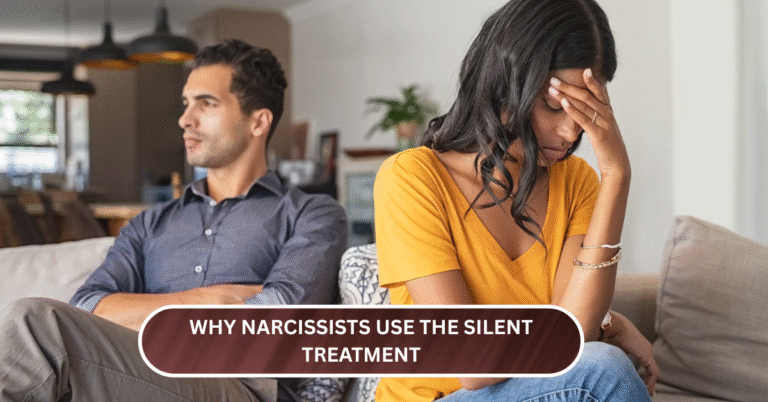
Sometimes, people use words that seem caring but actually have hidden motives. Narcissists are experts at saying things that appear kind but are meant to control or manipulate. If you have ever felt confused or guilty after hearing certain phrases from someone, you might have experienced this type of emotional control.
Understanding these phrases is important for protecting yourself. When phrases like “I’m only doing this because I care” or “You’re too sensitive” come up, they often hide blame and avoid real responsibility. In this article, we will explore five common narcissist phrases and how they are used to deflect accountability and cause guilt.
I’m Only Doing This Because I Care
This Article Includes
This phrase sounds loving and supportive at first, but it often masks control. Narcissists say this to justify their behavior, especially when it might hurt or upset you. It is a way of saying, “You must accept what I do because it’s for your own good.” This can make you feel guilty if you question their actions.
Real care does not come with conditions or control. If someone keeps insisting they hurt you only because they care, you should look deeper. Caring should feel respectful, not forceful or controlling.
You’re Too Sensitive
When a narcissist says you are “too sensitive,” they are trying to dismiss your feelings. This phrase makes you doubt your own emotions and may silence you from expressing yourself. It shifts the blame from their hurtful actions to your reaction.
If you often hear this statement, it’s a sign that your feelings are being invalidated. Everyone’s emotions are real and important. Being told you are “too sensitive” is often used by narcissists to avoid taking responsibility for their behavior.
I Never Said That
This phrase is a classic way to gaslight someone. When a narcissist denies things they said or did, they make you question your memory or understanding. It is a tactic to confuse and gain power in the conversation.
Gaslighting can make you feel unsure about yourself and more dependent on the narcissist’s version of reality. Trusting your experience is important. If you remember something clearly, do not let anyone make you doubt it.
You’re Overreacting
Similar to “You’re too sensitive,” calling you an overreactor is a way to dismiss your feelings and concerns. It tells you that your response is wrong or exaggerated, even when you have a good reason to feel upset.
This phrase is often used to control how you express emotions. Narcissists want to keep the focus on their feelings or needs, avoiding any responsibility for hurting you. Remember, your feelings are valid no matter how someone else judges them.
I’m the Victim Here
Narcissists frequently turn situations around to make themselves look like the victim. This phrase is used to gain sympathy and avoid accountability. It makes you feel guilty for pointing out problems, as if you are the one causing harm.
This tactic controls the narrative by shifting blame. Recognize that in healthy relationships, both sides communicate openly without constantly making one person feel responsible for everything. Don’t accept the role of the guilty party just because someone insists they are the victim.
How to Protect Yourself from These Phrases
Knowing these phrases is the first step to protecting yourself from emotional control. When you hear them, pause and reflect on what is really being said. Ask yourself if the person is taking responsibility or trying to avoid it.
Set clear boundaries with people who use these phrases. You can respond by calmly stating your feelings or walking away from conversations that feel manipulative. Talk to trusted friends or family members about your experiences to get support and clarity.
Conclusion
Narcissist phrases that sound caring are often tools for control and manipulation. They make you doubt your feelings and take on guilt that isn’t yours. Understanding these common phrases helps you see when someone is deflecting accountability and protects your emotional well-being.
Remember, true care respects your feelings and does not try to control you. If you recognize these phrases in your relationships, trust yourself and take steps to protect your peace of mind.


